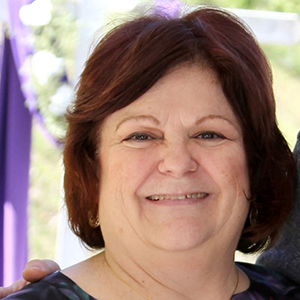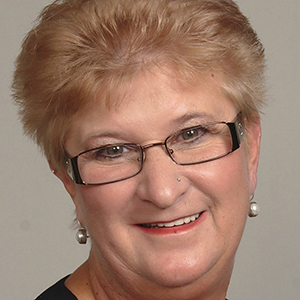In this Article

Certifications may demonstrate that medical billers and coders have gone beyond studying the information and practicing the skills needed for the job. Certifications are only earned after passing an exam that tests them on skills specifically related to the certification—usually within time limits.
In other words, a certification acts as an additional confirmation you have the field-specific skills and know-how to thrive as a medical biller and coder.
Certifications are optional but “help you get your foot in the door,” explains Robyn Korn, MBA, RHIA, CPHQ, adjunct instructor of medical coding at Purdue University Global.
They are particularly helpful for getting hired in competitive job markets. “Some institutions, like hospital-based organizations, are going to be picky to hire someone who has a professional credential,” says Nancy Szwydek, MPH, RN, RHIA, CRAT, CMAC, who is assistant dean for accreditation at Purdue University Global. “As much as they are voluntary, it’s almost necessary to earn a certification for some jobs.”
You can take a certification exam after you finish your medical billing and coding education; these are not part of your regular coursework or tied to graduation. Some certifications are tied to medical billing, but most are for medical coders.
These certifications fall into two categories: foundational certifications, which show your mastery of billing and coding skills needed across the board, and specialty certifications, which relate to niche medical fields.
Certifications typically require intensive preparation, and taking the exam is no joke, either: Some exams last nearly six hours. That effort can pay off, though—literally. Medical billers and coders with a certification tend to earn higher wages, and salaries increase with the number of certifications you have.
“Credentials take you further than just completing a coding program,” says Korn. “They show employers you have a really strong knowledge base in that arena.”
Can Certification Affect My Pay?
Certifications may increase your pay. Employers recognize the level of mastery required to earn a certification, and may be willing to adjust your pay accordingly.
Certificate vs Certification
- Certificate
- A certificate is awarded by an educational institution, and signifies that a student has satisfactorily completed a given curriculum. Certificate programs can help students prepare for certification exams.
- Certification
- A certification is generally awarded by a trade group after an individual has met certain professional requirements (e.g. earned a specific degree, worked professionally in a given field for a set amount of time, etc.) and passed a certification exam.
In short, a certificate is evidence that someone has completed an educational program, while a certification denotes that someone has met a certain set of professional criteria and/or passed an exam.
Not all programs offered are designed to meet state educator licensing or advancement requirements; however, it may assist candidates in gaining these approvals in their state of residence depending on those requirements. Contact the state board of education in the applicable state(s) for requirements.
What Certifications are Available?
There are many certifications for medical billers and coders, and they range from the foundational (like certified coding associate) to the specific (such as anesthesia and pain management.) It’s not uncommon for someone to complete a medical billing and coding program, and then earn a certification while they work.
Certifications can relate to a field of medicine (such as obstetrics and gynecology) at the facility where you work. You can also earn certifications in a type of medical billing and coding (such as risk management), which can be leveraged anywhere you work.
Some of the most common and popular certifications include:
Certified Coding Associate (CCA)
Certified Coding Specialist (CCS)
Certified Coding Specialist–Physician Based (CCS-P)
Certified Professional Coder (CPC)
Certified Outpatient Coder (COC)
Certified Inpatient Coder (CIC)
Certified Risk Adjustment Coder (CRC)
Certified Medical Coder (CMC)
Billing Coding Specialist Certification (BCSC)
Certified Medical Reimbursement Specialist (CMRS)
How Do I Decide Which Certification to Pursue?
With an entire alphabet of certification options, it can feel overwhelming to choose a direction. Here’s some advice to help you chart a course.
- Networking:
- “Networking can show you which types of credentials are in high demand,” Korn says. Ask other professionals during conferences and social events, or on online discussion boards about the trends they see in hiring needs and what certifications employers are looking for.
- Job postings:
- You can skim job posting sites to find in-demand certifications. Most openings include minimum or ideal requirements, which may list credentials.
- Specialties:
- After you’ve worked in the field, you’ll probably discover that you’re more passionate about particular areas of billing and coding. You can earn certifications that may help move your career to focus on those interests. For example, if you love working around kids, you can earn a certification in pediatrics.
Who Certifies Billers and Coders?
Two groups grant certifications in medical billing and coding. They offer different certifications, each of which demonstrate skill and expertise in a given area.
- American Academy of Professional Coders (AAPC):
- The AAPC offers exams for certification in medical billing, medical coding, compliance, auditing, and other subjects. It also provides ongoing education opportunities; continued education credits are required to maintain most certifications.
- American Health Information Management Association (AHIMA):
- Credentials from AHIMA emphasize practical skills needed in maintaining healthcare records. The organization offers multiple coding certifications and specialty certifications.
What About Specialty Certifications?
The AAPC provides coding specialty certifications, which are designed for professionals with significant experience in a medical subfield, such as radiology or anesthesia. These are optional but offer an opportunity to specialize, potentially increasing your earnings and ability to work in increasingly specialized medical settings. On average, medical coders with a specialty certification earn more than those without.
“A biller/coder’s day-to-day work is similar in many settings,” Szwydek says. “What varies is the specialization you may need. For example, if you work in an oncology department at a hospital, you may need a certification in hematology and oncology.”
Exams for these certifications are designed to mirror “real life” scenarios by testing how candidates apply coding skills and knowledge of specialty regulations in response to examples of patient notes. Many of these exams can be completed online. (Many billing and coding educational programs can be completed remotely as well.)
Specialty certifications demonstrate expertise in narrow medical fields. These include:
- Ambulatory Surgical Center (CASCC):
- using medical coding for surgery and other treatments, as well as the use of pharmaceuticals, at an ambulatory surgical center (ASC). A coder with this certification would work at an ASC.
- Anesthesia and Pain Management (CANPC):
- using medical coding for anesthesia cases. A coder with this certification would work in facilities that perform surgery.
- Cardiology (CCC):
- using coding systems to code from physician notes and coding surgical procedures performed by cardiologists. A coder with this certification would work in the cardiovascular department of a hospital.
- Cardiovascular and Thoracic Surgery (CCVTC):
- correctly coding visits and surgeries performed by cardiovascular and thoracic surgeons. A coder with this certification would work in the surgery department of a hospital.
- Dermatology (CPCD):
- using coding systems to identify dermatology-related procedures, diagnoses, and surgeries. A coder with this certification would work with dermatologists, either in a hospital or physician’s practice.
- Emergency Department (CEDC):
- coding surgical procedures, sedation, and other procedures common to emergency departments. A coder with this certification would work in the emergency department of a hospital.
- Evaluation and Management (CEMC):
- using sound judgment on subjective aspects of documentation, plus risk assessment and time-based coding. A coder with this certification could work for a health system or hospital.
- Family Practice (CFPC):
- using coding systems for services and procedures common in family practices, plus knowledge of evaluation and management coding. A coder with this certification could work in group practices of family physicians.
- Gastroenterology (CGIC):
- coding services, treatments, and surgeries performed by a gastroenterologist. A coder with this certification would work in the gastroenterology department of a hospital.
- General Surgery (CGSC):
- coding for surgical procedures such as colonoscopy and hernia repairs. A coder with this certification would work alongside surgeons in a hospital.
- Hematology and Oncology (CHONC):
- coding and regulations for services related to hematology and oncology, such as chemotherapy, bone marrow biopsies, and venipuncture. A coder with this certification would work in an oncology department in a hospital or a lab in a hospital, health system, clinic, or medical laboratory.
- Interventional Radiology and Cardiovascular (CIRCC):
- coding for this radiology subspecialty, which has a high average error rate and high potential for earning. A coder with this certification would work in the radiology or cardiovascular units in a hospital or health system, or an imaging center.
- Obstetrics Gynecology (COBGC):
- coding of obstetric services, including prenatal care, deliveries, and postpartum care, as well as hysterectomies and biopsies. A coder with this certification would work in the obstetrics/gynecology units in hospitals or health systems, a standalone clinic, a midwifery practice, or a multi-physician practice.
- Ophthalmology (COPC):
- coding procedures and surgeries performed by ophthalmologists. A coder with this certification would work in a specialized ophthalmology department within a hospital or health system.
- Orthopedic Surgery (COSC):
- coding surgeries and services performed by orthopedists, including fracture repairs and spine surgeries. A coder with this certification would work in the orthopedics department of a health system or hospital, or a standalone clinic or multi-physician practice of orthopedics.
- Pediatrics (CPEDC):
- coding of services, procedures, and minor surgeries, including vaccinations and fracture care. A coder with this certification would work in the pediatrics department of a hospital or health system, or in a clinic or multi-physician practice.
- Rheumatology (CRHC):
- coding of services and surgical procedures performed by rheumatologists, such as trigger point injections and joint injections. A coder with this certification would work in the rheumatology department of a hospital or health system.
- Urology (CUC):
- coding for procedures such as urinalysis and surgeries including biopsies performed by urologists, plus time-based coding. A coder with this certification would work in the urology department in a hospital or health system.
Does My Certification Change My Job Description?
Once you earn a certification, your job description doesn’t necessarily change. You may take on a few additional responsibilities, but you will likely perform the same tasks as you did before.
Once you have a certification, you can work toward a promotion in job title and/or compensation.
If you are looking to move your way up in an organization, especially if you aim for managerial positions, certifications may help your aspirations.

Written and reported by:
Catherine Ryan Gregory
Contributing writer

With professional insight from:
Robyn Korn, MBA, RHIA, CPHQ
Adjunct Instructor of Medical Coding, Purdue University Global

With professional insight from:
Nancy Szwydek, MPH, RN, RHIA, CRAT, CMAC
Assistant Dean for Accreditation, Purdue University Global